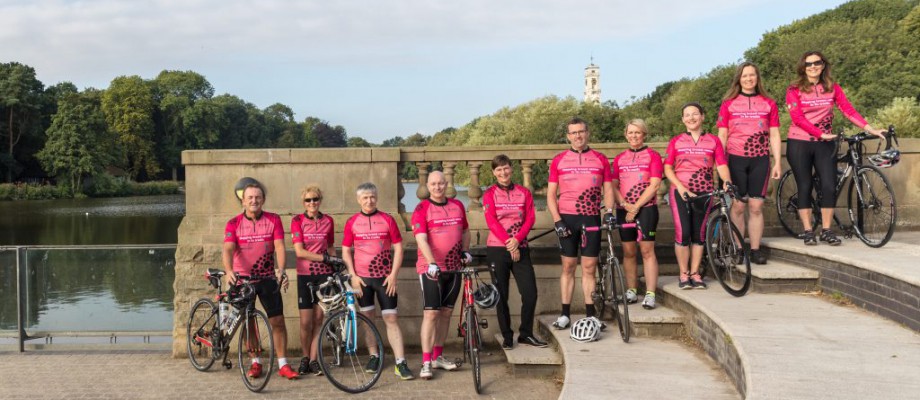
Cyclists set for 1,400 mile challenge to beat breast cancer
August 19th, 2016
A team of intrepid riders are preparing to tackle the four compass points of Great Britain to raise vital funds for breast cancer research.
The Nottingham Life Cycle 6 endurance riders are led by Professor Sir David Greenaway, Vice-Chancellor of The University of Nottingham, who is embarking on his final fundraising ride.
They will set off today (Friday August 19) and ride 1,400 miles to the four compass points of Great Britain – from Lizard Point to Lowestoft Ness, Ardnamurchan Point to Dunnet Head – a challenge that will take them two weeks.
The ride is one of the flagship fundraising events in the #BreastCancerAndMe campaign launched by the University earlier this year.
The campaign has a £1 million target and funds will go directly into the university’s laboratories to support world-leading breast cancer research.
Among the team is Professor John Robertson, a world renowned Breast Cancer specialist and Professor of Surgery in the Faculty of Medicine and Health Science.
A group of women who have been treated for breast cancer in Nottingham, benefited from the pioneering research and starred in a hard-hitting campaign video, gathered at the University to give the cyclist a good send off.
Sue Stannard, of Caythorpe, said: “I know that I have really benefited from research and developments into Breast Cancer. If this had happened to me 15-years-ago I don’t think I’d be here now.
“I’m passionate about ensuring there is money for research – especially for secondary cancer. We must do everything we can to stop people dying in the future.”
The University of Nottingham’s Vice Chancellor has taken part in Life Cycle – an annual sponsored bike ride – since 2011 when he cycled from John O’Groats to Land’s End to raise money for palliative and end of life care.
He said: “We are all inspired by the cause. Breast cancer is the second most prevalent cancer globally. In the UK alone 58,000 new cases are diagnosed every year and no fewer than 1 in 8 women will experience the disease in their lifetime.
“The research we are supporting is targeted at earlier detection; therapies to manage the spread of the disease; and personalized treatment. Clearly they are all related; the earlier clinicians can make a diagnosis, the more likely they are to manage its progression and the higher the likelihood of genuinely personalized therapy.
“For me, this will be my final Nottingham Life Cycle, and I am extra determined to make the biggest contribution possible to that £1 million target.”
Follow the action
How is the team getting on? Read the Vice-Chancellor’s blog for daily updates.
Comments are closed.
Other

Need news? See you on SharePoint
After 14 years of service, Campus News is being retired as the university’s staff news platform. […]

Roads and car parks closed for refurbishing work
As part of ongoing road improvements at the university, works will be taking place to resurface […]

